The Dire Straits album Brothers in Arms was originally released this week several years ago, on May 17th, 1985. Resting decidedly in the pop/rock end of the rock & roll musical genre, the band emerged a half-dozen years before during the post-punk musical movement. We look at the introspective mood of this album with this look at the nine songs that are the album Brothers in Arms.
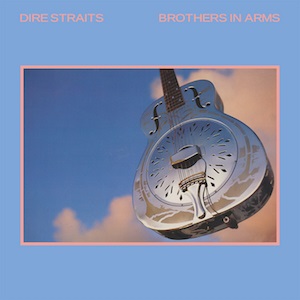
So Far Away “finds Dire Straits frontman (sic) Mark Knopfler lamenting an itinerant lifestyle that keeps him away from a loved one,” per the Songfacts listing here. While reportedly not autobiographical, Knopfler found the song relevant since “[f]amilies are split up in different parts, all over the place.” The song charted as high as twentieth (20th) in the United Kingdom and nineteenth (19th) in the United States.
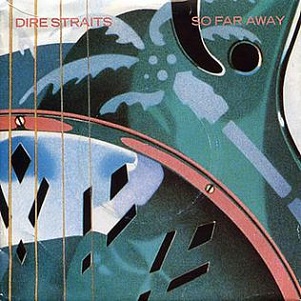
Money for Nothing “is about rock star excess and the easy life it brings compared with real work,” as quoted here. Writing credits for the song rest with Knopfler and Sting, with the song charting as high as fourth (4th) in the United Kingdom and first (1st) in the United States. Knopfler mentioned that the song was written after “overhearing delivery men in a New York department store complain about their jobs while watching MTV.”
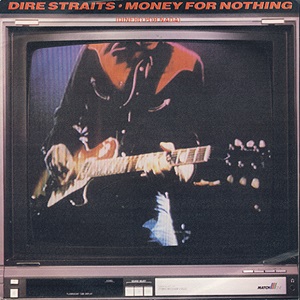
Walk of Life “wrote this song to celebrate the street buskers of London,” as mentioned here. Being from the American Midwest, I’ll admit to having needed a translation of the term street buskers, especially since the “music video shown in America took a different approach: it showed sports bloopers.” The notion can translate, as people playing music outside professional sporting venues in the United States is fairly common, especially when events are in town. The song charting as high as second (2nd) in the United Kingdom and seventh (7th) in the United States.

Your Latest Trick was not released as a single in the United States. Michael Brecker played the saxophone intro for this song, which charted as high as twenty-sixth (26th) in the United Kingdom. A trumpet solo by Randy Brecker also accompanied the compact disc version of this song.
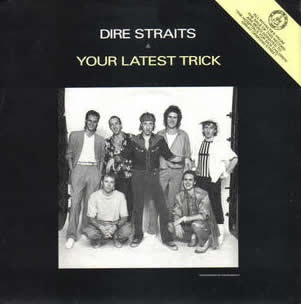
Why Worry finds “finds [songwriter Mark Knopfler] comforting a loved one in rather poetic terms,” as mentioned here with a quotation of the song’s lyrics. The song bears out the lullaby sound and lyrics, “as Knopfler turns the cold, cruel world into a place of tranquility.” Tony Levin played on the song.

Ride Across the River invokes struggle by crossing a river. The struggle feels existential in finding meaning through having something to fight for, with different views of the precise meaning and means to get there at stake. There’s an interesting sense of musical theatre to this song in particular that makes for a great album song that needs not translate to popular appeal to land well to my ear.

The Man’s Too Strong harkens back to some notion of war and the behaviors of the song’s narrator, for which he is seeking to atone. The opportunity for interpretation definitely lies with whom you imagine the narrator to be, with the potential for the narrator’s perspective being someone from the German forces of World War Two, this making “the man” one of the Allied or neutral forces trying the narrator in the narrator’s thoughts.

One World faces the notion of “the starving artist” perspective of being a musician down on his luck. The questioning of one’s musical playing, song writing creativity and even the basics of living feel beyond reach. The song is guitar driven with drumming besides to complete the sound. Neil Jason played on the song.
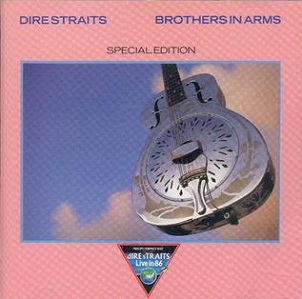
Brothers in Arms “was inspired by the Falklands War, which was going on when Dire Straits lead singer Mark Knopfler wrote the song,” as mentioned here. The conflict between Argentina and the United Kingdom broke out in 1982, with 258 British soldiers reportedly dying in the conflict. The message represents “a look at the folly of war and the plight of those who fight them.” Malcom Duncan played on the song, which charted as high as sixteenth (16th) in the United Kingdom.
Matt – Wednesday, May 17, 2022
